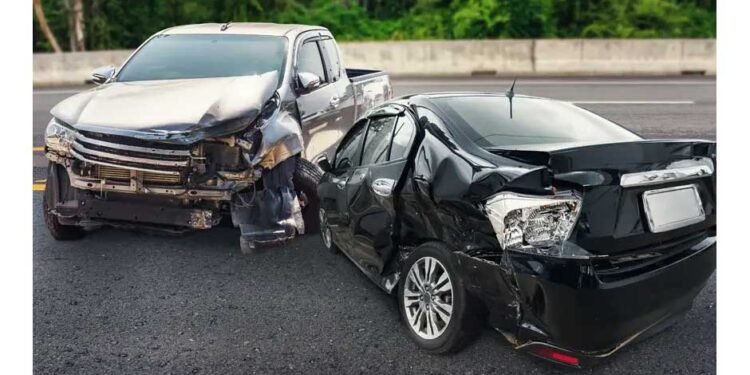With the rise of rideshare services like Lyft, getting around has become more convenient than ever. However, as these services become increasingly popular, understanding the intricacies of rideshare liability in the event of an accident is essential.
What is Rideshare Liability?
Rideshare liability refers to the legal responsibilities of the parties involved in a rideshare accident. This includes determining who is at fault and how damages are to be compensated. Central to rideshare liability are legal concepts such as negligence and vicarious liability.
Negligence occurs when a party fails to exercise reasonable care, leading to an accident. Vicarious liability holds one party (usually an employer) accountable for the actions of another (like an employee) during the course of their work. In the context of rideshare services, these concepts are vital in establishing who is liable when accidents occur.
Parties Involved in Rideshare Accidents
When discussing rideshare accidents, several key parties may be involved:
- Rideshare Drivers: Individuals driving for Lyft, are responsible for the safety of their passengers and adherence to traffic laws.
- Passengers: Those using the rideshare service, who have certain rights and expectations regarding their safety.
- Other Drivers on the Road: This includes any vehicles that may be involved in an accident with the rideshare vehicle.
- Pedestrians: Individuals who may be impacted by a rideshare vehicle, adding another layer of liability.
Scenarios of Rideshare Accidents
Understanding liability in rideshare accidents often requires examining specific scenarios.
A. Passenger Injured in a Lyft Accident
If a passenger is injured during a Lyft ride, the liability often falls primarily on the Lyft driver. Depending on the circumstances, Lyft may also bear some responsibility. Lyft’s insurance policy generally covers injuries to passengers while they are in the vehicle, but the specific details can vary based on the situation. Passengers can file personal injury claims against the driver for negligence if the accident was caused by the driver’s recklessness or failure to adhere to traffic laws.
B. Accident Involving a Lyft Driver and Another Vehicle
In cases where a Lyft driver is involved in an accident with another vehicle, determining liability becomes more complex. Liability may lie with the Lyft driver if they were at fault, but it can also be shared with the other driver if they contributed to the accident. Insurance considerations play a crucial role here; both drivers’ insurance policies will likely come into play when evaluating damages.
C. Passenger Injuries Due to Driver Negligence
There are scenarios where a Lyft driver’s negligence can directly lead to passenger injuries. For instance, if the driver was distracted, driving under the influence, or violated traffic laws, they may be held accountable for any injuries sustained by passengers. Passengers may pursue personal injury claims to seek compensation for medical bills, pain and suffering, and other related expenses.
D. Accidents Caused by Other Road Users
Sometimes, accidents may occur due to the actions of third-party drivers. If a Lyft vehicle is struck by another driver who is at fault, the other driver may be held liable for any injuries sustained by the Lyft driver or passengers. In these situations, Lyft’s insurance can help cover damages. However, passengers injured in this scenario may still seek compensation from the at-fault driver’s insurance.
Rideshare Insurance Coverage
Understanding Lyft’s insurance policy is essential for both drivers and passengers. Lyft offers different coverage levels depending on the driver’s status during an accident:
- While Transporting Passengers: Lyft provides comprehensive insurance coverage, including liability and personal injury protection.
- While Waiting for a Ride Request: The coverage is less extensive, typically only covering liability for injuries to third parties.
It’s important for Lyft drivers to maintain their personal insurance policies in addition to relying on Lyft’s coverage. If a driver is found to be at fault in an accident, both Lyft’s insurance and the driver’s personal insurance may be considered in the claim process.
Legal Considerations in Rideshare Liability
Legal implications vary by state and can significantly affect liability determinations. State laws govern how negligence and liability are defined and enforced. Additionally, collecting evidence in rideshare accidents is crucial for establishing liability.
- Dashcam Footage: Capturing the incident as it unfolds can be invaluable.
- Witness Statements: Eyewitness accounts can provide clarity about how the accident occurred.
- Medical Reports: Documentation of injuries is essential for personal injury claims.
Understanding Lyft Liability
Rideshare liability is a complex issue that involves various parties and numerous legal considerations. Understanding who is responsible in the event of an accident can help both drivers and passengers navigate the aftermath more effectively. It’s crucial for all parties involved to be aware of their rights and responsibilities, as well as the insurance policies that protect them.
If you find yourself involved in a Lyft accident, consulting with a legal professional is advisable to ensure you receive the appropriate guidance and support. Knowledge is power, and understanding rideshare liability can help protect you in the event of an accident.












